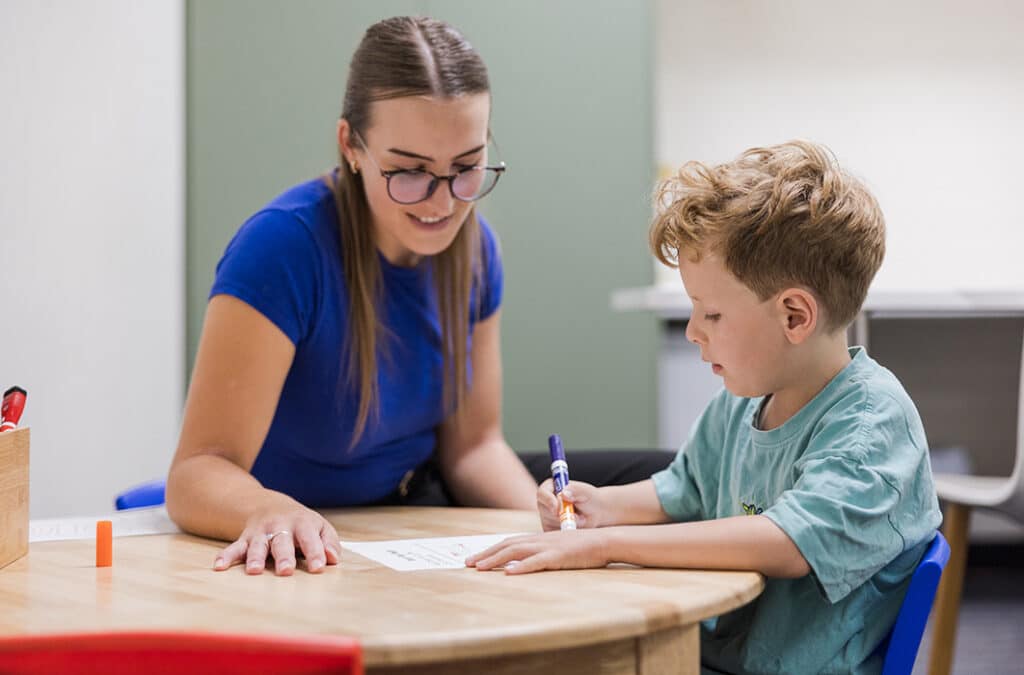Good hand control is essential for everyday tasks like writing, drawing, cutting and self-care activities. But what many parents don’t realise is that the foundations for fine motor skills, like posture and coordination, start much earlier and affect how well a child can use their hands.
Why posture matters
Postural stability gives children the strength and control to use their arms and hands effectively. If a child has poor posture or core strength, they may slump at the desk, tire easily, or use awkward movements to compensate. This can make it harder to control a pencil, cut with scissors, or complete everyday tasks with confidence.
Occupational Therapists (OTs) often look at the way a child sits, stands and moves, to see if their posture is limiting their fine motor development.
How coordination supports hand use
Hand-eye coordination and bilateral coordination (using both sides of the body together) are also key for functional hand skills. If a child struggles to stabilise the page with one hand while writing with the other, or has difficulty catching, throwing, or copying from the board, it may be linked to coordination challenges.
Coordination affects how smoothly and efficiently the hands can perform complex movements like tying shoelaces or buttoning a shirt.
How OT can help
Occupational therapists support children to build strength, stability and coordination in a fun, engaging way. Therapy might include:
- Core and shoulder strengthening activities to improve postural control
- Movement-based games that encourage balance and body awareness
- Activities to improve bilateral coordination and hand-eye coordination
- Fine motor games to develop strength, control and endurance in the hands and fingers
Each therapy plan is tailored to the child’s needs, helping them develop better body awareness, stronger core muscles, and improved hand control for everyday tasks.
If your child is finding handwriting, dressing or fine motor activities difficult, improving posture and coordination might be the missing piece. An OT assessment can help identify the underlying challenges and create a supportive plan to help your child succeed.
